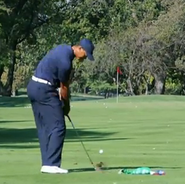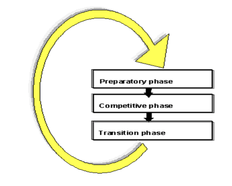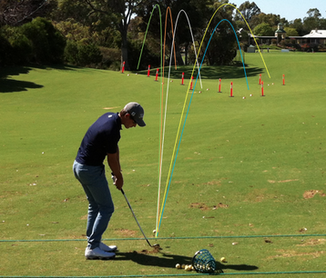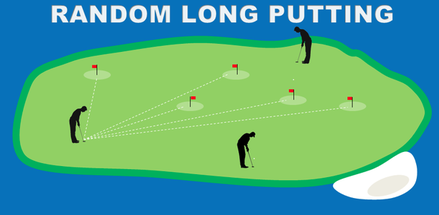- HOME・ホーム
-
日本語
-
About Tom Fielding Golfについて
- Teaching Philosophy
- Privacy Policy
- Tom Fielding Golf School Japan - Golf Improvement BLOG
-
Blog and News Updates
>
- How good a golfer are you right now
- How Far Should I Hit My 7 Iron?
- Most Golf Fitness Misses the Mark Completely
- The Mid Round Slump!
- Take This Quick Strike Test To See What Level You Are
- Golf Camps・ゴルフ合宿
- 2019 Summer Golf camp photo galleries
- JP-3 day / 2 night: Golf Camp 3日・2泊ゴルフ合宿
- EN-3 day / 2 night: Golf Camp
- APRIL/MAY2019 Newsletter: EN version
- February 2019 Newsletter: EN version
- February 2019 Newsletter: JP version
- Golf Fitness
- Why is change so difficult
-
Lesson Articles
>
- How To Practice Golf At Home – 6 Steps To Practicing At Home
- Internal & External focus - JP
- Pro Golfers are not that good
- 3 essentials for CONSISTENCY IN GOLF
- The Golf Swing and negative words
- Beat the Heat
- Hot Weather Guidelines
- Swing Radius
- Exclusive 4 steps for improved ball striking
- Hitting from different lies
- Weight transference
- POSTURE
- Training in different climates
- Fitness Friday: Preparing for a cold-weather round
- How far will the golf ball go in cold weather
- TrackMan: Definitive Answers at Impact and More
- Clearing the left side too early is damaging.
- The Ball Flight Laws
- Head Position
- Distance = Club Head Speed + Square Impact + launch angle
- Attention! The Pre-Shot Routine
- The Basic Skill of Chipping
- 4 stages of learning
- How to Break 90 - Part 1
- How to Break 90 #2
- How to Learn a Great Golf Swing
- Perfect Practise makes practise.
- 3 Essentials to breaking a habit
- Basic principles of exercise - Points to bring out the maximum practicing effect
- Things to consider before aiming at the flagstick
- Learnig motor skills: The GOLF Swing
- RULES OF GOLF PAGE >
- Golf Humour >
-
ゴルフスクール Menu
- 2024 SUMMER Golf Camp in Japan-EN >
- 2024SGC-JP サマーゴルフ
- Melbourne Golf Tour: March 2025
- Teaching locations: Lessons inquires & bookings >
- Trial Golf Lesson >
- 2 hole Private・貸切 training program
- 1/2 day Golf School: Kashikiri program@Morinagatakako CC
- Internet Golf Lesson >
- Testimonials Customer feedback
-
Photo / Video Gallery
- 2023 Summer gof camp photo gallery
- 2022 Summer Golf Camp - Photo Gallery
- 1 / 2 day golf camp - Photo gallery
- 2021 Summer Golf Camp - photo gallery
- 2020 Summer golf camp@ Appi Kogen Iwate prefecture
- 2019 Summer Golf camp photo gallery
- Summer golf camp 2018 photo gallery
- Photo Gallery from the Australia Vs Japan Junior challenge
- 2017 5周年のSummer golf camp-Photo/Video gallery
- 2016 4周年のSummer Golf Camp Photo Gallery
- 2015 The 3rd Summer Golf Camp @ Pelican Waters Golf Resort
- 2014 Summer Golf camp photo gallery
- 2013 Summer Golf Camp at Pelican Waters, Sunshine Coast, Queensland Australia.
- 2014 The 3rd Students Cup Pro-Am 2014 - Photo Gallery
- 2013 The 2nd Students Cup Pro-Am 2013
- Video Gallery
Taking your Practice to the CourseOne of the common complaints I hear from my students is their inability to take their golf game to the course. They experience a certain level of proficiency on the range or practice tee but then collapse when they actually go and play. There are a couple reasons for this and hopefully, through the example here, I can shed some light on how to improve your transfer of skills. Are your golf practice sessions boring and tedious at times? You are not a golfer if you haven’t experienced these aspects of golf practice, and yes it’s true that golf practice can seem monotonous and even boring at times, however by managing the two practice styles I'm going to discuss in this article your golf practice routines will become far more challenging and a lot more enjoyable. Let's start with an important question I want you to answer honestly; "How do you know that you are practicing your golf skills the right way?" Do you favour block style practice or random style practice? You should know the difference between these two main practice styles - especially if your intention is to practice your golf skills to improve, because these different golf practice styles can help you to develop and improve the high pay-off golf skills and transfer them to the golf course faster. The Illusion of Competence Many of the amateur and professional golfers we have observed over the years lean towards practicing the style of practice known as block practice. Block practice is when you practice a single golf skill over and over to one target (like hitting chip shot after chip shot to one hole) until your practice bag or your range bucket is empty. I think you’ll agree that this type of practice is a very common way for golfers to practice? And here’s what you should know right up front about this common type of practice; block practice style is a lot like rote learning (it's very repetitive) and can lead to “the illusion of competence” where you mistakenly rate your ability when performing a certain skill repetitively much higher than it really is.  "Repeating one type of stroke over and over to the same target can improve your rhythm, tempo and timing during the session, which can influence you to believe that you are getting better at your golf skills because you are hitting lots of good shots in your session...But just be aware of the trap that this type of practice can lead you into." The Golf Practice Trap Blocked golf practice can and does influence golfers (and even their instructors) to develop a false sense of confidence (when they are preparing for a tournament) because the golfer is hitting the golf ball so well in practice that it can really increase their confidence. But it is often only short-lived as this confidence is often crushed during the tournament because the consistency and predictability of those exciting and productive practice sessions goes right out the window when shots are on the line. The research on blocked practice suggests that this type of practice does not transfer well to the golf course in competition, or lead to long-term memory retention. The simple fact is that the way you practice your golf skills really matters because when it comes down to it, the whole idea of golf practice is to transfer your golf skills successfully to the golf course and perform them to the best of your ability. In a 2011 article by Ron Kaspriske in Golf Digest magazine Kaspriske included advice from UCLA Professor Emeritus Richard Schmidt PhD and expert on motor learning who shared with attendees at the World Golf Fitness Summit that year the following advice about block practice; “In blocked practice, because the task and goal are exactly the same on each attempt, the learner simply uses the solution generated on early trials in performing the next shot. Hence, blocked practice eliminates the learner’s need to ‘solve’ the problem on every trial and the need to practice the decision-making required during a typical round of golf.” The Value of Block Practice StyleBlock practice is ideal for performing repetition practice where you might be performing a particular golf drill your instructor wants you to practice, and you need to perform lots of repetitions to develop it and habituate it to the level of unconscious competence. Block practice is extremely important for skill perfection practice, such as when you are perfecting a golf swing habit. The mental challenge level is lower in block practice as you are mainly focused on correct execution of a skill-set. This could be the perfecting of a particular drill where you are focusing on the correct feel of the drill, and using the feedback of a mirror, video or possibly your golf instructor to determine your level of accuracy at performing the skill. If you are hitting golf shots to targets, you would be hitting sets of golf shots to one target at a time with the intention of hitting many shots to reinforce consistent motion.  Block practice is very helpful for developing your techniques during the preparation phase in your golf development cycle, but is not nearly as helpful during a golf tournament cycle. The Value of Random Practice Style Random practice is quite different to block practice because you are continually varying your practice routines to improve your shot-making adaptability. You do this for example by hitting a set of golf shots to different targets that vary in the length and also in orientation to where you are on the golf range. Random is as it sounds, you continually hit different types of shots to random targets just like you get on a golf course. An example of a random practice routine would be when you hit a 7 iron to one target green, then you might hit a driver to another distance target and then a sand shot to a tight pin and so on. You are practicing adaptability which is the BIG SKILL of high performance golf. Varying your shot-making skills to include a range of shot types from short to long continuously, really helps you to develop and enhance your playing skills and ability. Random practice style is very helpful in the pre-tournament and tournament phases because it gets you out of swing thinking and improvement mode and into shot-making and feel mode. So the key to effective golf practice is to know what development cycle you are in and why. Practicing block style around tournament time isn't helpful for skill transfer as your mind-set can be too much on technique perfection and not enough on targeting adaptability.
You would be surprised at how many professional golfers are working on their techniques during a tournament cycle instead of working on it in the pre-season. You need to really think about how you are practicing your golf skills and which style you are favouring by making sure that your practice is influenced by the development cycle you are in currently. Both these styles of practice are very important and you should sit down with your golf instructor and design a practice plan that distributes the proportion of time you need for block style practice (for technical development) and balancing it out with a proportion for random style practice (targeting development). Get the mix right, and practice will never seem boring, and you will discover that the hard work on the driving range will transfer to the golf course more easily, leading to better performances and a lot more fun.
1 Comment
|
- HOME・ホーム
-
日本語
-
About Tom Fielding Golfについて
- Teaching Philosophy
- Privacy Policy
- Tom Fielding Golf School Japan - Golf Improvement BLOG
-
Blog and News Updates
>
- How good a golfer are you right now
- How Far Should I Hit My 7 Iron?
- Most Golf Fitness Misses the Mark Completely
- The Mid Round Slump!
- Take This Quick Strike Test To See What Level You Are
- Golf Camps・ゴルフ合宿
- 2019 Summer Golf camp photo galleries
- JP-3 day / 2 night: Golf Camp 3日・2泊ゴルフ合宿
- EN-3 day / 2 night: Golf Camp
- APRIL/MAY2019 Newsletter: EN version
- February 2019 Newsletter: EN version
- February 2019 Newsletter: JP version
- Golf Fitness
- Why is change so difficult
-
Lesson Articles
>
- How To Practice Golf At Home – 6 Steps To Practicing At Home
- Internal & External focus - JP
- Pro Golfers are not that good
- 3 essentials for CONSISTENCY IN GOLF
- The Golf Swing and negative words
- Beat the Heat
- Hot Weather Guidelines
- Swing Radius
- Exclusive 4 steps for improved ball striking
- Hitting from different lies
- Weight transference
- POSTURE
- Training in different climates
- Fitness Friday: Preparing for a cold-weather round
- How far will the golf ball go in cold weather
- TrackMan: Definitive Answers at Impact and More
- Clearing the left side too early is damaging.
- The Ball Flight Laws
- Head Position
- Distance = Club Head Speed + Square Impact + launch angle
- Attention! The Pre-Shot Routine
- The Basic Skill of Chipping
- 4 stages of learning
- How to Break 90 - Part 1
- How to Break 90 #2
- How to Learn a Great Golf Swing
- Perfect Practise makes practise.
- 3 Essentials to breaking a habit
- Basic principles of exercise - Points to bring out the maximum practicing effect
- Things to consider before aiming at the flagstick
- Learnig motor skills: The GOLF Swing
- RULES OF GOLF PAGE >
- Golf Humour >
-
ゴルフスクール Menu
- 2024 SUMMER Golf Camp in Japan-EN >
- 2024SGC-JP サマーゴルフ
- Melbourne Golf Tour: March 2025
- Teaching locations: Lessons inquires & bookings >
- Trial Golf Lesson >
- 2 hole Private・貸切 training program
- 1/2 day Golf School: Kashikiri program@Morinagatakako CC
- Internet Golf Lesson >
- Testimonials Customer feedback
-
Photo / Video Gallery
- 2023 Summer gof camp photo gallery
- 2022 Summer Golf Camp - Photo Gallery
- 1 / 2 day golf camp - Photo gallery
- 2021 Summer Golf Camp - photo gallery
- 2020 Summer golf camp@ Appi Kogen Iwate prefecture
- 2019 Summer Golf camp photo gallery
- Summer golf camp 2018 photo gallery
- Photo Gallery from the Australia Vs Japan Junior challenge
- 2017 5周年のSummer golf camp-Photo/Video gallery
- 2016 4周年のSummer Golf Camp Photo Gallery
- 2015 The 3rd Summer Golf Camp @ Pelican Waters Golf Resort
- 2014 Summer Golf camp photo gallery
- 2013 Summer Golf Camp at Pelican Waters, Sunshine Coast, Queensland Australia.
- 2014 The 3rd Students Cup Pro-Am 2014 - Photo Gallery
- 2013 The 2nd Students Cup Pro-Am 2013
- Video Gallery


 RSS Feed
RSS Feed